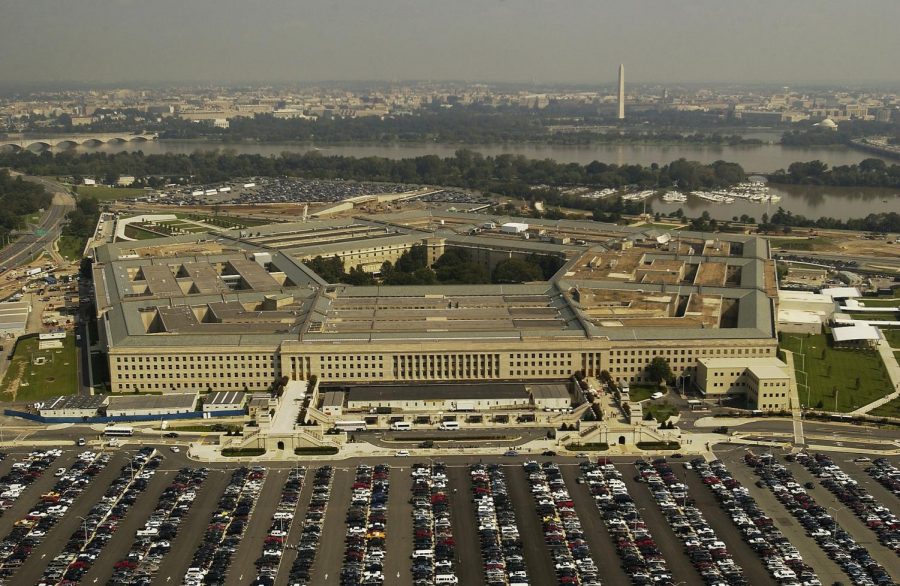Transgender Recruits Allowed to Enlist Starting Jan. 1st
December 22, 2017
Transgender. A word that creates some controversy. Merriam-Webster defines transgender as “ … a person whose gender identity differs from the sex the person had or was identified as having at birth.” In recent politics, the role of transgender members in the U.S. Armed Forces has come into the spotlight.
Timeline of events:
2011: President Barack Obama repealed the “don’t ask, don’t tell” policy barring gay men, lesbians, and bisexuals from serving in the military, but he refrained from commenting on transgender individuals in the military.
July 2015: The Pentagon announced it would start making a plan to allow transgender people to serve openly.
June 2016: Defense Secretary Ashton B. Carter announced that transgender people may serve openly, saying, “They can no longer be discharged or otherwise separated from the military just for being transgender.”
July 2017: President Trump Tweeted, “After consultation with my generals and military experts, please be advised that the United States government will not accept or allow transgender individuals to serve in any capacity in the U.S military.”
October 2017: A federal judge allowed for the ban to be paused, pending further legal review.
November 28th, 2017: Federal Court of Washington DC ruled that the Department of Defense would begin accessing transgender individuals.
December 11th, 2017: The Pentagon announced that transgender recruits would be allowed to enlist in the military starting January 1st, despite President Trump’s efforts to stop transgender recruits from enlisting.
Some don’t want transgender recruits in the military because they think it will raise costs for the military. But as Helen Cooper from the NYTimes states, “the RAND (Research ANd Development) Corporation, in a 2016 study, found that allowing transgender people to serve openly in the military would ‘have minimal impact on readiness and health care costs’ for the Pentagon.”
Major Dave Eastburn, a spokesperson for the Department of Defense (DOD), said in an email interview that the announcement shows the Pentagon is, “adhering to the Federal Court of Washington DC’s November 28th ruling determining DOD would begin accessing transgender individuals.” When asked if he thinks there will be any effect on the military and how it defends the United States, he said, “You’re asking me to speculate. No can.”
Taylor Michaud, a 2016 PIHS graduate, is now enlisted in the Marines. His opinion on the issue is, “I don’t mind if they join.” Michaud goes on to say, “Everyone has the right to be the person they want to be,” and that’s one of the reasons why he joined the Marines, so that people can live their lives how they wish and not have to do the hard work he does.
Michaud said, “No one should be refused the right to serve,” if they are fit to serve. But Michaud also says that he thinks it’s wrong if transgender recruits join just to take advantage of military benefits to fund their transition, and then just leave. They’d be, “Wasting the military’s time and money, as well as the U.S taxpayer’s money simply because they don’t want to pay for it themselves.” Michaud emphasizes that this is his personal opinion, not the Marines’.
Senior Lauren Johnson is a member of the PIHS Gay Straight Trans Alliance group. When asked to comment on the announcement, Johnson, said, “It’s always good to hear that trans people are being afforded the same rights as other Americans. The lives of trans individuals have been treated as political bargaining chips for a long time and it’s definitely reassuring to hear otherwise from a major government organization like the Pentagon.”
Some people think that having transgender recruits in the military will have a negative impact on the military. In response, Johnson said, “Trans troops are just as capable of fulfilling their duties as their fellow cisgender troops. These capable and patriotic people are willing to give up their lives for our country. Why should we stop them?”
This decision is seen as a victory for the transgender community, but there is still a lot of work to do. Access to healthcare for transitioning can still be hard to receive. As Johnson said, “This is absolutely a step in the right direction for trans folks in the US, but there’s still a long way to go.”

